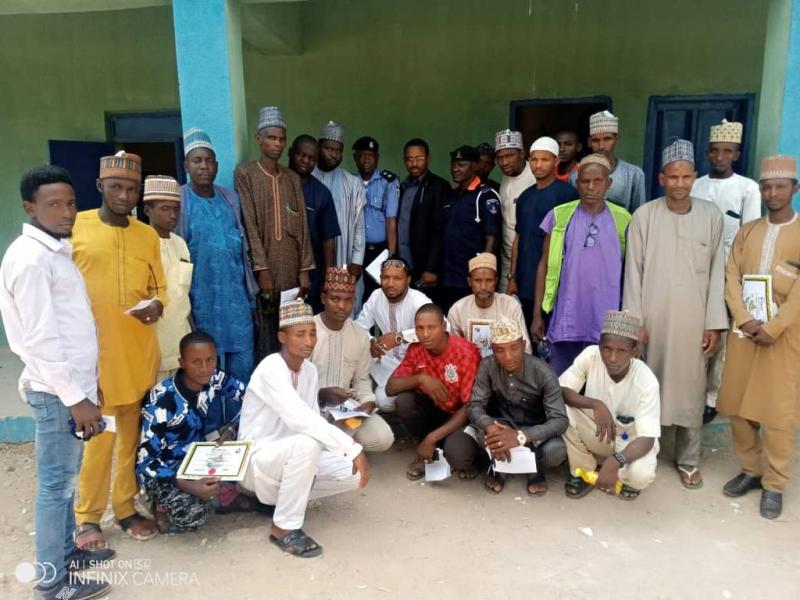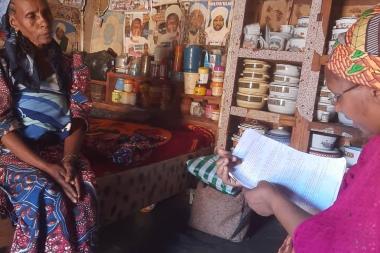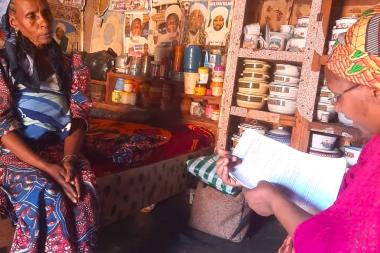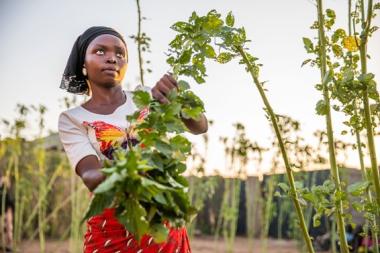Nigeria: Some land tenure insecurity issues in Hayin Ade and Wuro Bappate
This brief is the second in a series highlighting issues facing pastoralists and agropastoralists in two areas in Nigeria: Hayin Ade in Kaduna State and Wuro Alhaji Idrisa Bappate in Taraba State.

SPARC and its partner the Fulbe Development and Cultural Organization (FUDECO) want to improve understanding of the challenges that pastoralists and agropastoralists view as most critical in their own words, how these challenges impact their lives and livelihoods, what coping and adaptive strategies they currently employ and what additional assistance they would like in order to improve their futures.
This brief examines land tenure insecurity in two sites in Nigeria: Hayin Ade in Kaduna State and Wuro Alhaji Idrisa Bappate in Taraba State. Its key messages are:
- On paper, Nigeria’s Land Use Act of 1978 provides a framework for streamlining land tenure and protecting rights, but it also vests control over land allocation and management to the governors of states and to local governments. Variation in implementation as interpreted by Local Government Authorities (LGAs) has led to an inconsistent system in which abuses to land tenure security are rife.
- Interviewees in Hayin Ade (Kaduna State) and Wuro Alhaji Idrisa Bappate (Taraba State) are experiencing land tenure insecurity but the contributing factors are different, reflecting how local contexts are embedded within the broader system of land rights.
- Illegal artisanal mining presents a number of significant challenges to pastoralists and agropastoralists in Wuro Alhaji Idrisa Bappate. Landowners experienced violence and property destruction when their plots were invaded by illegal miners in 2017. Ongoing degradation of rangelands due to erosion around abandoned mines and livestock falling into such mines continue to damage livestock-based livelihoods. Interviewees also expressed fear that the miners might return.
- In Hayin Ade, 85% of long-established pastoralists and agropastoralists have land purchase agreements; the remainder rent plots on an annual basis. Attempted land grabs and extortion are becoming more common, due to rising land prices. Factors contributing to rising land prices include: federal policies promoting agricultural production over herding; population increases coinciding with higher demand for remaining land; and political and urban elites speculating on land. Land tenure insecurity is causing tremendous economic stress for households; those battling evictions or extortion are uncertain whether to plant crops.
- Pastoralists and agropastoralists in both communities are not sufficiently aware of their rights regarding land tenure, or to compensation. SPARC partner FUDECO has initiated rights education and supports members in resolving disputes where possible using alternative dispute resolution methods. In a few instances, it is providing legal services.
- When working with pastoral and agropastoral communities, development actors need to be aware of land tenure security issues. Promotion of livelihood programmes for some groups without considering such tenure-insecurity dynamics can undermine the effectiveness of programmes, risk inflaming existing tensions and contribute to further marginalisation
This report is the second in a series highlighting issues facing pastoralists and agropastoralists in these two settlements. The first publication, Livelihoods, conflict and mediation: Nigeria, presents an overview of the research.
With each successive report, we will highlight a different issue to add nuance to narratives around pastoral and agropastoral challenges from the perspectives of those living with such challenges, including critically interrogating those who present potentially over-simplified views on farmer–herder conflicts and underlying conflict drivers.


